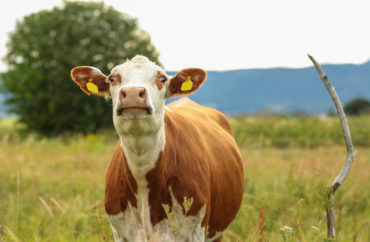
Tax would address ‘critical health and environmental challenges of the food system,’ Oxford researcher says
Professors in Europe and the United States are recommending governments create a tax on meat to address what they describe as “critical” environmental problems.
“A modern tax system that addresses the critical health and environmental challenges of the food system is urgently needed,” University of Oxford Professor Marco Springmann told the environmental news website Green Queen.
Springmann and others at the university’s Environmental Change Institute recently published a study in the journal Nature Food that advocates for raising value-added taxes on meat and dairy across Europe, according to the report. In conjunction, their research suggests ending the tax on fruit and vegetables.
The researchers wrote that higher meat prices would discourage consumption, thus “improv[ing] not just public health” but also government revenues and decarbonization efforts, the report states.
Increasing European countries’ tax on meat would help address “climate change,” according to the report:
Food-related tax revenues would shoot up by a third (or $45B when adjusted for purchasing power parity), while climate change costs would be reduced by $12B due to lower emissions, and healthcare costs would fall by $26B…
Across Europe, the food system’s emissions would be reduced by 63 million tonnes (or 6%) with higher taxes on meat and dairy and zero-rated fruits and vegetables, while lowering land use by 71,000 sq km (6%) and freshwater consumption by 5%.
Most of these changes were associated with reductions in meat and dairy, including beef (32%), milk (29%), pork (22%), and poultry (15%). Here, too, the UK and Poland benefitted the most, with climate footprints lowered by 12% and 9%, respectively.
New York University professors have made a similar argument for a tax on meat in the United States. Unlike in Europe, most foods in the U.S. are not taxed.
“Most Americans eat meat. Yet this habit has a host of harmful repercussions for the planet, animals, and human health,” Professors Dale Jamieson and Katrina Wyman wrote in a paper published in July.
In “Designing a ‘made in America’ meat tax” published in the NYU Environmental Law Journal, they linked “greenhouse gasses” to livestock and “climate change.”
“The starting point for this Article is recognizing that it is time for U.S. scholars and policy analysts to begin examining potential designs for a meat tax that could be applied in this country as part of broader societal efforts to decarbonize,” they wrote.
Some universities also are discouraging meat and dairy consumption in favor of a plant-based diet.
For example, the University of Michigan’s cafeterias now make oat milk their “default milk” instead of dairy, the Michigan Daily reports.
Although dairy products are still an option, cafeteria workers encourage students to choose oat milk, according to the report.
The change, which began in the fall, is part of the public university’s wider effort to reduce its “carbon impact,” MDining Marketing Manager Kelly Guralewski told the Daily.
MORE: More students would give up having children, eating meat than cellphones to help climate: poll
IMAGE: Jelena Safronova / Shutterstock
Like The College Fix on Facebook / Follow us on Twitter







Please join the conversation about our stories on Facebook, Twitter, Instagram, Reddit, MeWe, Rumble, Gab, Minds and Gettr.